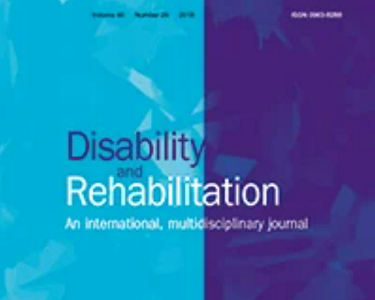Transitions that matter: Life course differences in the employment of adults with arthritis
Academic Publications

Author(s): Jetha, A., Bowring, J., Tucker, S., Connelly, C. E., Martin Ginis, K. A., Proulx, L., & Gignac, M. A. M.
Date: 2018
Resource: Disability and Rehabilitation, 40(26), 3127-3135
Purpose: To understand the similarities and differences in the employment participation of people living with arthritis across the life course.
Method: Focus groups and interviews were conducted with young (ages 18–34 years, n = 7), middle-aged (ages 35–54 years, n = 13) and older adults (>55 years, n = 25) with arthritis. Participants were asked about the impact of arthritis on employment, experiences with health-related changes, career progression and social role involvement. A modified grounded theory approach was used to inductively analyze the data.
Results: Young adults indicated the school-to-work transition as being influential in their employment and described the need to direct their time and energy toward finding work that accommodated health and met career aspirations. Middle-aged adults described how the transition from good health to an arthritis diagnosis disrupted involvement in diverse social roles. However, they often downplayed the impact of arthritis on employment. Older adults described the work-to-retirement transition and their decline in physical functioning as contributing to changing involvement in the labor market.
Conclusion: Transitions related to health, career progression and social role involvement shaped employment experiences, and represent opportunities for future research and practice that is tailored to life course issues.
Implications for rehabilitation: Little is known about the work experiences of young- and middle-aged adults with arthritis and how they compare to their older counterparts.
Life course theory offers an important framework for research and practice by providing a perspective to enhance our understanding of how employment participation differs across phases of life.
Salient and diverse changes related to health, career and social role involvement were identified at each life phase and shaped employment.
Rehabilitation practitioners should pay special attention to a client’s age, life phase and work history as a strategy to enhance the delivery of interventions that promote work participation.
Related Research Areas: Disability in the Workplace

